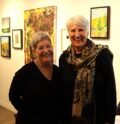Commentary
A non-election year
January 14, 2016
By Tony Pearson
One aspect of 2016 to consider: it’s not an election year in our area. At both the provincial and federal levels, the Liberals hold majorities which should see them through to 2018 and 2019. And the next municipal elections aren’t until 2018.
That’s not to say that this will be a year free of political arguments. Many issues will generate discussion and debate: immigration, environmental protection, pension plans, and the reform of laws on controversial subjects such as marijuana and doctor-assisted dying. There are also many important aboriginal issues to be addressed.
A large number of federal and provincial issues will impact at the local level: hydro costs and the proposed sale of Hydro One, health-care financing, municipal property assessment, policing and community safety, and of course infrastructure funding. These slide over to such important municipal concerns as roads, sewers, and waste disposal
However, the absence of any imminent elections offers a chance to bring light as well as heat to the discussions. In addition, it offers opportunities for engagement of more people in the discussions leading to key decisions.
The town of Bancroft made a start last year toward promoting more interaction between councillors and ratepayers. They held two town halls, to mixed results. The one in Dungannon was packed and featured lively debate, while the one in Bancroft itself was poorly attended, with little dialogue.
Not everything works the first time. Let’s hope that Bancroft council continues the practice in 2016. Generating interest can be a hard slog – just ask a newly-formed band. People need a reason to turn out and get involved. Elections are reasons, but even then only half the eligible Bancroft voters actually cast ballots last time. Between elections, participation seems to depend on aggravation – i.e., who feels they’re being seriously neglected or treated unfairly.
Nonetheless, towns have important decisions to make every year, especially during the budget process.
They have to decide on spending projects and tax rates. Here, people can be contradictory – wanting lower taxes but also better roads and services, and more economic development. Local councillors have to run a gauntlet between these conflicting desires.
As councils begin these deliberations, it would be useful for ratepayers to remember that taxes aren’t collected just for annoyance value. They pay for waste disposal, for fire protection, for road repairs, for snow clearance, for policing, for signage for tourists, and many other projects. Any time someone proposes tax reductions, they should have to say specifically what they’re willing to give up in exchange.
(Oliver Wendell Holmes was a justice of the U.S. Supreme Court, and also an author. When his law clerk said he’d found a loophole where Holmes could avoid tax on his royalties, the Justice refused to use it, stating: “Taxes are the price we pay for civilization.”)
Usually, whatever town councillors choose to put in or leave out of their budgets brings them criticism from those opposed to their decisions.
It also brings resounding silence from those in favour. If anyone runs for office looking to receive cheers on a regular basis, they soon receive a rude surprise.
In the end, it’s easy to criticize after action has (or hasn’t) been taken. However, it’s more important to get information and express your opinion before the councillors have to decide.
The public can even play a more active role than providing opinion; they can help find solutions. To take a prime example, Bancroft has a major financial problem with the costs of its sewer system – an annual deficit that’s running at around $400,000 a year.
In November, the council agreed to ask for the public’s help in identifying causes and solutions. As a result, a large number of people with expertise in water and sewer management came forward and offered their assistance. Now there’s a council/public committee at work, and showing optimism at finding some answers.
Fernando Cardoso, the first Brazilian politician to be re-elected as that country’s president, said: “Democracy is not just voting. It consists of strengthening each citizen’s capacity to participate in the deliberations about life in our society.” So it’s an interactive process – a two-way street. Councils have to develop ways to bring more residents into the debate about municipal priorities. And residents have to accept such invitations to get involved.
The process can be frustrating on both sides. Citizens get disillusioned if they feel their voices are ignored. Politicians get frustrated if their requests for feedback are unanswered.
In the end, “democracy belongs to the people who use it.” (American journalist Bill Moyers). To put it another way, those who don’t get involved are putting all their trust in those who do, whether they agree or whether they don’t.
Hopefully, 2016 will see more efforts at dialogue between municipal councillors and ratepayers. Without an election on the horizon, these discussions can actually be collaborations, not confrontations.

















